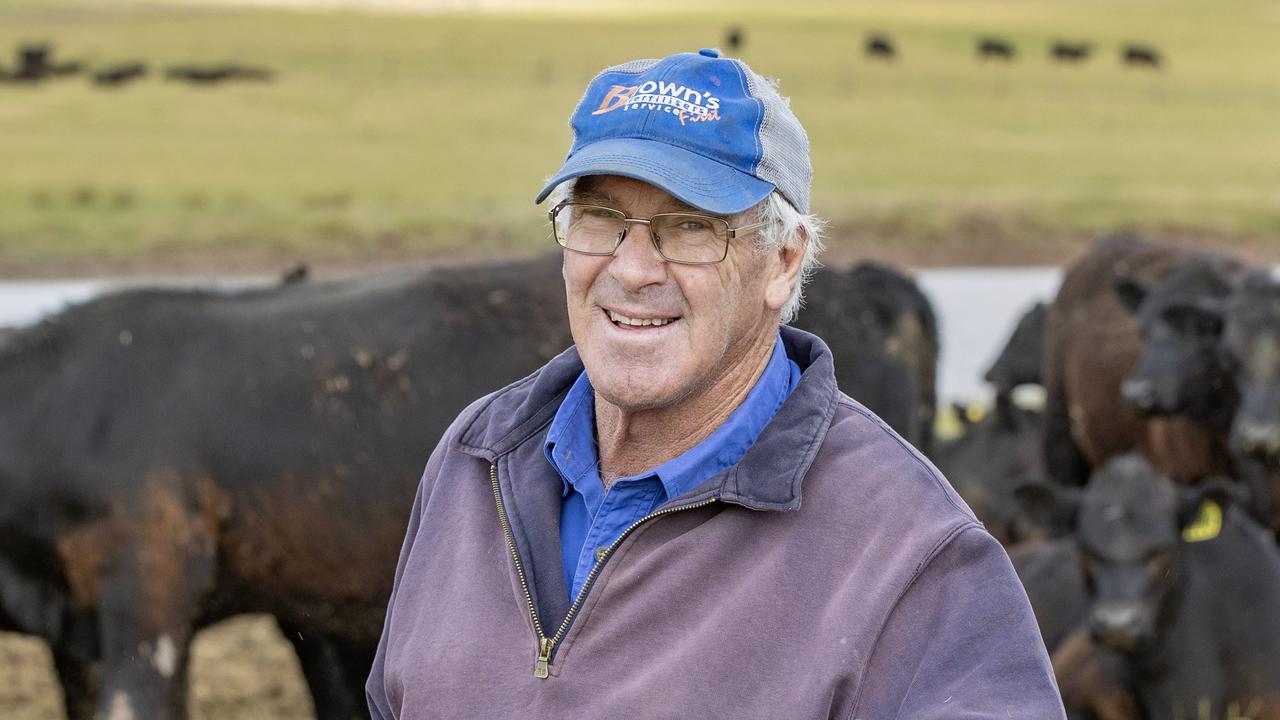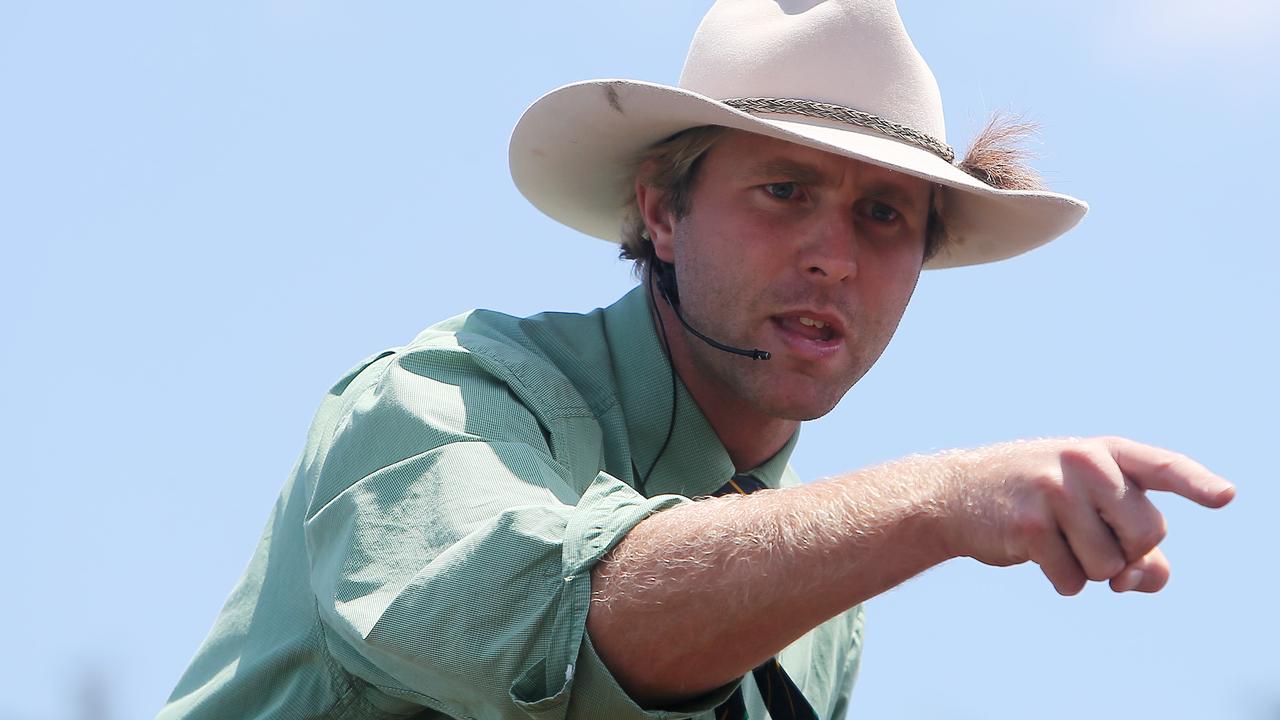Farm crime: Southern Grampians, Glenelg Australia’s worst regions for livestock theft
A special investigation into livestock theft pinpoints where brazen repeat offenders target farmers. See how regions compare nationwide.
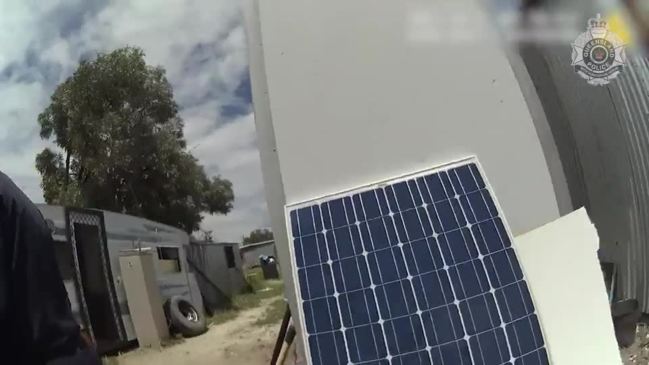
A huge spike in livestock theft by value and stagnant offence rates reveal Victoria is lagging behind other states in the race to crack down on rampant farm crime.
State agriculture leaders are calling for a policing overhaul while disillusioned farmers are desperate for more support to deter thieves.
The latest Crime Statistics Agency figures show there were 236 livestock thefts reported statewide in the 12 months to March, down 16.3 per cent year-on-year.
Victoria Police Farm Crime Coordination Unit acting inspector Gary Wilson said the decrease was “incredibly positive”, but the skyrocketing $2.62m worth of stolen stock tells a different story.
It’s a 10-year high by value, and tops the previous year by more than $500,000.
Victorian Farmers Federation estimates the true cost could be more than $30m, with the loss of wool, milk and future breeding potential taken into account.
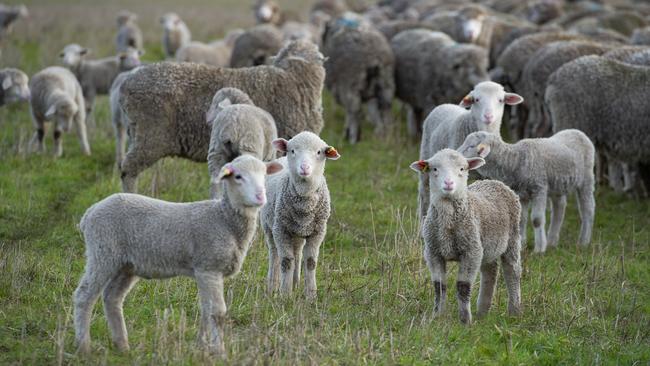
Offence rates in other states have fallen consistently, with NSW down 18.9 per cent on last year, and a five-year average annual decrease of 8.9 per cent.
South Australia stock thefts are down more than 18 per cent, with an average annual decrease of 14 per cent over three years.
In Victoria, meanwhile, offence rates haven’t changed compared to five years ago, when 232 stock thefts were reported. Victoria’s five-year annual average is an increase of 7 per cent.
VFF livestock group president Steven Harrison said the lack of progress was a “disgrace” and called on all sides of government to be more proactive on the issue.
TOLL OF STOLEN STOCK:
BELINDA STEERS AND JAMES RUDD, AVENEL
Avenel Merino producers Belinda Steers and James Rudd have been continually targeted by thieves, with more than 200 sheep stolen in the past four years and more than 100 in the past year alone.
Their most upsetting incident took place in December, when 84 lambs were taken.
“They were small lambs and were easy to put on trailers,” Ms Steers said. “They were taken off their mums at a time that they weren’t old enough to be weaned. That is a massive welfare issue.
“I’ve heard of a neighbour down from us, he had ewes taken leaving two-day-old lambs behind.”
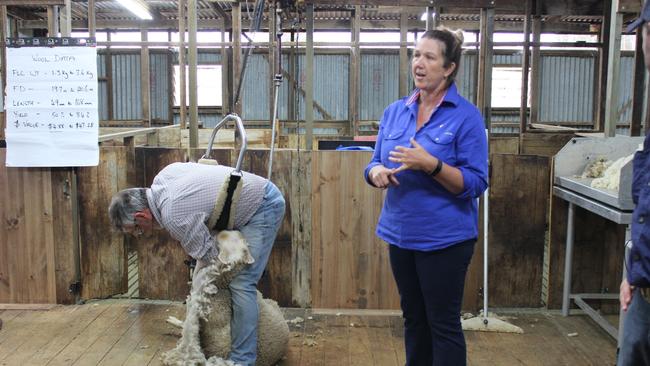
Ms Steers said there were also serious consumer implications because all her stolen stock had been in withholding periods due to chemical or veterinary treatment.
She said thefts were common in her region, despite farmers taking recommended precautions, such as installing security systems and reporting thefts immediately.
She felt there was little progress towards solving the crimes or discouraging the culprits.
“We feel like police are under-resourced,” she said.
“They (police) don’t have the technical knowledge that we do
“One of the officers wasn’t even aware of the paperwork you should be holding.”
Ms Steers would like access to more research about how to better protect her property.
“If you’re going to invest $30,000 on a security system, you want to make damn sure it works and that it’s suitable for what (stock and property) you’ve got,” she said.
“NSW has a rural crime research unit. They are actively going out trying to help farmers set up CCTV. Farms aren’t easy to monitor. There are no guidelines to get the best bang for your buck.”
STEVEN AND JAMES BROOK, LOCKSLEY
Fellow Strathbogie Shire farmer Steven Brook has had more than 300 sheep stolen from his Locksley property over five years. The most recent was in March, when 71 ewes, ewe lambs and wethers were snatched.
“This last amount of theft, they were valued at about the $16,000 mark,” Mr Brook said.
“If someone robbed a bank or business of that amount, the police would be responding with lights and sirens, they would be tracing (the criminals).
“But when you lose 70 sheep. You get police, they come out and do a report, and that’s it. There doesn’t seem to be the urgency.”
He said the true value of the lost ewes was closer to $1000 a head, taking into account the value of wool and lamb production.
Other Locksley producers had also been victims, he said, estimating about 800 sheep had been stolen from locals over the past few years.
Police advise all farmers to secure paddock gates with padlocks, frequently count stock and install security systems to deter thieves.
Mr Brook and a group of neighbours are going a step further, investing in video surveillance systems on multiple farms with licence plate recognition so future thieves can be caught on camera.
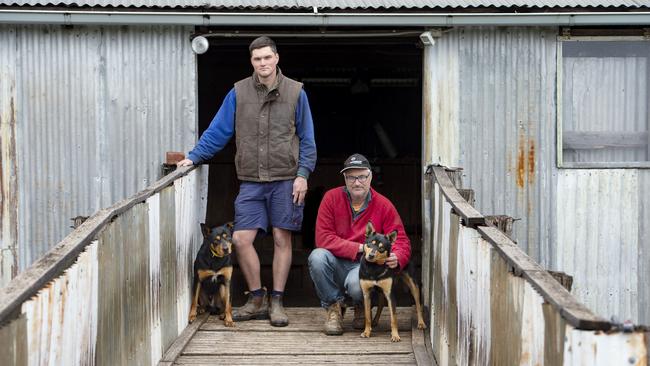
He said he had raised the distressing issue of stock theft with two previous state agriculture ministers, but received “no response whatsoever”.
“That is the disappointing thing,” he said. “It doesn’t seem to raise any interest in state government.”
GERALD PARRY, NAVARRE
Northern Grampians farmer Gerald Parry had 20 pregnant ewes stolen from his Navarre property in early March, with police unable to find his sheep or the thieves months later.
He said he reported the incident to St Arnaud police as soon as he had confirmed the sheep were missing, providing proof of ownership and their ear tag records.
Authorities said they would monitor the Horsham sale yards over the next few weeks.
“It is more than frustrating,” Mr Parry said. “To have our stock stolen the way it was, it is pretty brazen.
“It is fairly prevalent in the area and you are hearing more stories that it is happening.”
Mr Parry said the value of the stolen stock was between $6000 and $7000, but was worth closer to $20,000 factoring in their value over time.
“The police said if they found anything they were going to get in touch, but we haven’t heard anything,” he said.
“Everyone is aware it happened, but what can you do?
“You can put some cameras up, but not in every paddock so people are just keeping an eye out for strange vehicles with stock crates, trailers or even horse floats.”
WORST REGIONS IN VICTORIA
Southern Grampians is Victoria’s worst stock-theft hot spot, with 15 offences recorded – the region’s largest total in the past 10 years - up on its five-year annual average of 13.8.
Glenelg, Wellington, Greater Bendigo and West Wimmera round out the state’s top five theft areas, with 13, 12, 10 and nine offences respectively.
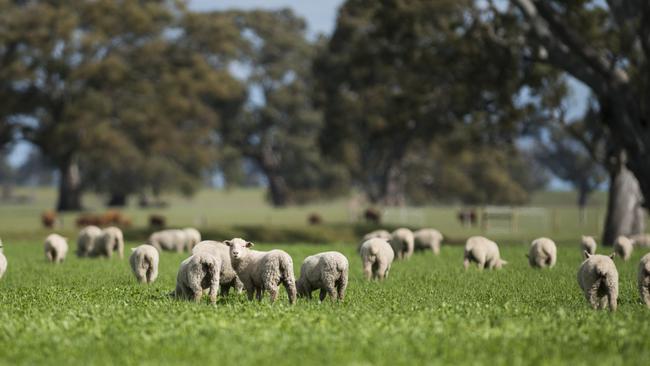
University of New England criminology senior lecturer Kyle Mulrooney has been tracking farm crime statistics for more than a decade.
The co-director for the Centre for Rural Criminology said pandemic lockdowns could have contributed to the nationwide decrease in rural theft offences over the past two years.
“But another factor to consider was that large parts of Australia were just coming out of a summer of bushfires, the value of livestock was lower than usual, so there was less incentive for farm crime.”
Dr Mulrooney said record prices for livestock would likely equate to a crime spike this calendar year.
“It’s not just opportunistic crime. Criminal networks can and do operate in the farm crime space,” Dr Mulrooney said. “When they realise there’s record prices out there, they will travel hundreds of kilometres to steal from what they see as soft targets.”
FORCING OUT CRIMINALS: JAMES FOWLER, STRATHBOGIE
Historically a magnet for rural criminals with 20 reported stock thefts in 2020-21, Strathbogie Shire recorded eight offences in the past year, placing it equal sixth with Ararat, Corangamite and Horsham.
Violet Town sheep farmer James Fowler was a victim during the 2020-21 crime wave.
He had 120 crossbred newly shorn lambs stolen from a property at Euroa in December 2020, when criminals hit at least three respected operators in the area.
All three farmers lost more than 100 recently shorn sheep each in the crime spree.

Mr Fowler said some farmers might feel embarrassed to speak up, but communication was essential to helping his community drive the thieves out.
“I went to my local police station to report it,” he said.
“And then I was made aware that I wasn’t the only person who had stock stolen.”
A farm crime unit officer organised a community meeting about the string of thefts and more than 80 locals turned up.
Mr Fowler said the community-wide discussion helped identify similarities between the crimes, and made locals more vigilant in monitoring unknown vehicles and suspicious activity.
No arrests were made, but since the community meeting, the thefts had stopped, he said.

VFF CALLS FOR CHANGE
Of Victoria’s 236 reported stock thefts in the 12 months to March, 201 remained unsolved and just one arrest was made.
VFF’s Mr Harrison said the arrest record – the state’s lowest in a decade – was “extremely frustrating”.
“If a tradie loses his tools in a suburban location or any regional town, the police are there within one or two hours,” Mr Harrison said. “However, on a farm it takes too long and at that stage it is far too late, because the evidence or the stolen stock are gone, have been on-sold or disappeared.
“We are working to get all farm and stock theft back on the radar of the government.”
Locksley farmer Mr Brook said he supported the idea of a major unit to investigate stock thefts.
“This is organised – well organised (crime),” he said.
“It is thought through and a lot of work goes into it.
“That is where the police have to have a specialist stock squad who can investigate these crimes from every angle.”
Victoria Police established a Farm Crime Coordination Unit in 2019, with 78 liaison officers working across the state.
FCCU acting Inspector Wilson said it was challenging for police to investigate stock theft if there were delays reporting incidents.
“While we are committed to providing a co-ordinated response to these offences we continue to urge the farming community to assist police to investigate and solve farm crime,” he said.
“It’s extremely challenging for police to investigate crimes, such as livestock theft if there is a delay in reporting the incident, so timely reporting is absolutely integral to all farm crime investigations.
“We want the farming community to know we will take every report of farm crime seriously.”



